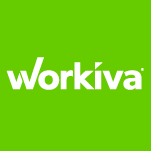Dive Brief:
- The Securities and Exchange Commission (SEC) brought 715 enforcement actions against companies in fiscal 2020, which closed at the end of September. The actions resulted in a record $4.68 billion in judgments, 475 bars or suspensions, and the delisting of 130 companies, the agency said in its annual report.
- The actions were triggered by a record number of whistleblowers contacting the agency with inside information on potential wrongdoing. The agency awarded 39 whistleblowers $175 million, a 200% increase from 2019. One whistleblower received $114 million.
- Despite moving to remote work status, the agency accelerated the speed at which it completed investigations. The average investigation time dropped to a five-year low of 21.6 months, with one investigation, against Neiman Marcus, taking only five weeks.
Dive Insight:
"The challenges we faced — and continue to face — were unexpected and beyond imagination," Stephanie Avakian, director of the SEC enforcement division, said in the report.
Most of the cases involved security offerings and investment advisory issues. The number of those topped 2019 by a significant margin. There were fewer other types of cases this year, but of these, a significant number involved companies' questionable financial reporting and accounting practices.

Companies charged for questionable financial reporting and accounting practices include MetLife, which improperly accounted for reserves in its annuities business; BorgWarner, which failed to account for asbestos liability in its financial statements; and Ironclad Performance Wear Corp., which inflated revenue.
Other companies whose practices didn't pass muster include RCI Hospitality Holdings, which improperly disclosed executive compensation and related-party transactions, and Silicon Valley-based data storage company Quantum Corporation, which repeatedly made revenue recognition errors.
A number of companies were penalized for trying to capitalize on COVID-19 fraudulently. Among these was Applied Biosciences Corp., which made false claims about a rapid-result finger-prick test, and Turbo Global Partners, which issued misleading statements about a partnership to sell thermal scanning equipment.
Dozens of individuals were hit with personal judgments as well. Two former executives with Indiana-based trucking company Celadon Group were penalized for allegedly concealing losses; former Hertz CEO and chairman was hit for allegedly aiding the company's filing of inaccurate financial statements; and three executives of a California solar panel company were penalized for allegedly diverting millions of dollars to personal expenses.
One former CEO was charged with trying to prevent whistleblowers from communicating with the SEC.
SEC Chairman Jay Clayton credited the agency for its work despite the pandemic. The agency's investigators, he said, "made extraordinary efforts across the country to identify wrongdoing and take meaningful action to protect American investors from misconduct."














